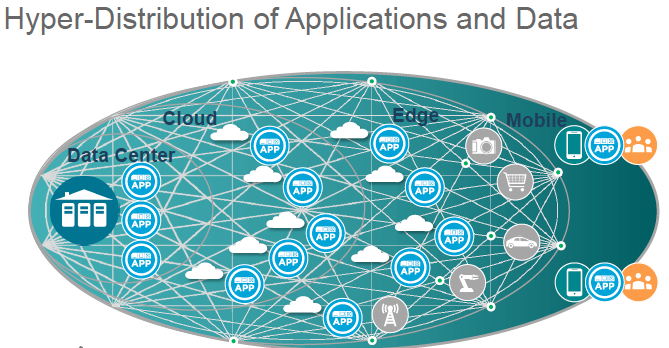Cisco Fills Out Intercloud Fabric Ecosystem

Cisco Systems this week rolled out what is says are the final pieces of its Intercloud Fabric that targets the growing enterprise shift to hybrid cloud infrastructure while allowing workload management "from a single pane of glass."
The networking giant also announced at a company event on Wednesday (June 10) that it is partnering with at least 35 software vendors to bolster its Internet of Everything initiative. Along with IoE cloud services, the Intercloud partners will focus on next-generation developer platforms as well as big data and analytics.
Cisco said its Intercloud "network of clouds" would add support for OpenStack KVM and Microsoft Hyper-V so users can match workloads to the appropriate cloud service regardless of hypervisor. The cloud fabric already supports VMware vSphere, and the company noted that the shift to hybrid infrastructure requires unified workload management. Hence, "all public clouds are treated the same."
Cisco's "single-pane-of-glass" cloud management approach is designed to provide a holistic view of the cloud domain that presents data about public and private clouds in a unified display, the company explains.
Mike Riegel, Cisco's vice president of cloud services marketing, said Intercloud Fabric also seeks to address the "hyper-distribution of applications and data" at the edge of the network. The company estimates that enterprise cloud adoption is growing at a 17-percent clip. At the same time, the proliferation of mobile devices has driven the consumption of cloud services to the point where there is exponential growth in the acquisition of services without traditional IT support. The result, Riegel argued, is "cloud service sprawl."

Source: Cisco Systems
Hence, the Intercloud Fabric is being positioned as a way to manage growing complexity and security requirements as more enterprises shift to hybrid models and the consumption of cloud services soars.
Operating on the premise that "hybrid cloud is more than just a connection," Reigel said the cloud services focus would center on an application-centric model as the final piece of the Intercloud ecosystem. Cisco's partner network includes big data vendors like Cloudera and HortonWorks, Apache Hadoop developers along with database specialists MapR and MongoDB. Beyond big data and analytics, the partners also will target IoE cloud services.
Cisco unveiled a "connected analytics" initiative last December that seeks to push data analysis along with processing power to the network edge.
The partners also will focus on developing micro-services and APIs that can be plugged into a new "DevNet" platform. Developers would have access to current APIs and micro-services via Cisco cloud, IoE and big data technologies delivered through Intercloud.
Meanwhile, cloud and IT service providers are increasingly trying to offer "baked in" security features. Cisco said it would extend its firewall services to Microsoft Azure in order to secure traffic between virtual machines. Riegel said in an interview the Intercloud security features are designed to "move network and security policies with your workloads across all clouds."
Cisco said it has so far signed up 60 cloud providers operating 350 datacenters in 50 countries to offer Intercloud services.
Cisco and others have estimated that 50 billion "things" will be connected by 2020, creating in Cisco's formulation an Internet of Everything. "We’re preparing for a much larger hybrid IT-enabled future where billions of digital services, applications and intelligent devices will need a control point," Nick Earle, a Cisco senior vice president for cloud sales, noted in a blog post.
Related
George Leopold has written about science and technology for more than 30 years, focusing on electronics and aerospace technology. He previously served as executive editor of Electronic Engineering Times. Leopold is the author of "Calculated Risk: The Supersonic Life and Times of Gus Grissom" (Purdue University Press, 2016).










